In this post, we’ll look at what a resume is, why it’s smart to highlight multiple sides of yourself, and how to do it in a way that feels relevant, professional and powerful.
What are the other qualifications?
What a qualification is may seem obvious, but it is often confused with skills or competences. A skill is about what you know, such as communication, accuracy or technical understanding. A qualification, on the other hand, is something you have done or achieved that shows you actually possess that ability.
For example: Being goal-oriented is a skill. It is a merit that you have run a marathon.
In a CV context, the heading other qualifications is often used for things that do not fit under education or work experience, but which nevertheless say a lot about you as a person and a candidate.
Want tips on skills to include in your CV? Read more about the most in-demand skills employers are looking for here.
Examples of qualifications
To give you a concrete understanding, we have put together a list of CVs with examples, where you can see what reflects you and the job you are applying for. Remember, it’s not about listing everything, but choosing what is relevant.
Licenses and certifications
Having relevant licenses or certifications shows that you have invested time and energy in your skills development. It can give you a clear edge over other candidates, especially if the certificates are in demand in your industry.
Example:
- IT and Technology: Google Analytics certifications and Microsoft Office Specialist show understanding and knowledge in analytics.
- Marketing: Certifications such as the Google Ads Certificate and HubSpot Content Marketing Certificate may be beneficial in marketing roles.
- Health and safety: CPR and BAM training are particularly relevant for those seeking jobs where occupational safety is important.
- Transport: A truck driver’s license and a C license for heavy trucks are an advantage for both the transport industry and warehouse work.
- Language skills: Being able to demonstrate your language skills through language tests such as TOEFL or IELTS is particularly relevant if you work internationally.
Awards and prizes
Awards and prizes show that you have been recognized for your performance. It gives employers the impression that you have the ability to exceed expectations and reach high goals.
Example:
- Named “Employee of the Month” at previous workplace
- Scholarship for academic achievement
- Won awards in marketing, design or other industry-related field
Extra tip: Highlight the motivation if it is strong, for example “For his ability to inspire and lift the team in stressful situations”.
Volunteering
Volunteering says a lot about you as a person. It shows that you care, take responsibility and often that you have the ability to lead without leading for your own benefit. It is also a good way to demonstrate leadership or teamwork skills, especially if you lack formal work experience.
Example:
- Volunteer or mentor for young people in after-school or youth activities
- Association work in sport or other activity
- Active in animal shelters and responsible for care and adoptions
Hobbies and hobbies
Hobbies can be strong credentials if they demonstrate qualities that are relevant to the job. The important thing is not just to mention them, but to link them to skills. Avoid hobbies that may seem completely irrelevant unless they complement something else in your application.
Example:
- Marathon runner: Demonstrates perseverance, goal focus, discipline – well suited to physically demanding jobs or roles that require long-term planning
- Photographer: Shows visual flair, patience, attention to detail – relevant in design, communication, marketing
- Blog or YouTube: Demonstrates communication skills, technical understanding and initiative.
- Involvement in sports club: Demonstrates team spirit, responsibility, leadership
How to highlight your other achievements in your CV
Including the other qualifications is good, but formulating them correctly is even better. For the section to make a difference, it needs to be clear, relevant and well-worded. Therefore, select qualifications that add something extra to your application and strengthen your profile for the specific position you are applying for.
Here are some things to consider:
- Adapt to the role: highlight qualifications that reflect the qualities the employer is looking for, such as responsibility, initiative or teamwork.
- Show the value: Don’t just describe what you did, but also show how you did it and what it led to.
- Structure smartly: Bulleted lists make the content easier to understand and help the recruiter to quickly grasp the most important points.
- Keep it short and focused: A CV should ideally be 1-2 pages. Highlight one strong merit clearly rather than stacking several that add nothing.
When you choose the right credentials and present them in a thoughtful way, the section becomes a strength and not just an add-on.
Want more tips on how to make your CV as strong as possible? Read our guide on how to write a CV that really stands out.
Common mistakes to avoid
1. you don’t adapt your credentials to the job you secure
Read through the advertisement and try to identify the qualities the employer is looking for. If you are applying for a project manager job after five years of work experience, your qualifications should reflect that. Put old school assignments to rest and highlight anything that strengthens your credibility for the particular role you are interested in.
2. you do not highlight the value behind the merit
It is not enough to just write what you did, you also need to show why it matters. For example, compare‘Student Council representative‘ with‘Student Council member – responsible for communication and driving student initiatives that improved the school environment‘. The latter option doesn’t just tell you what you are good at – it shows what you did, how you did it and what it led to.
3. you try to include too much
It may be tempting to list everything you have done, such as courses, awards and hobbies, but you risk losing what is really strong. Choose the most relevant and describe it clearly. It’s better to write a bit more about a strong achievement than to pile up several less important ones.
Executive summary
Other qualifications are a chance to stand out and show who you are, beyond titles and grades. Use this section to show initiative, breadth, personality and match it to the role you are applying for.
Want more tips on how to write a selling and credible CV? Contact us – we are happy to help you on your job journey.






